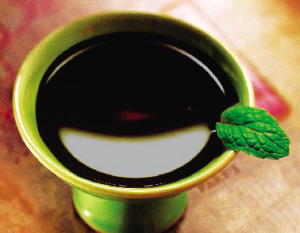Coughing is a common symptom that can be both bothersome and disruptive. While it is often associated with respiratory infections or irritants, Traditional Chinese Medicine (TCM) offers a comprehensive approach to understanding and treating coughs. In TCM, the causes and mechanisms of cough are deeply rooted in the balance of the body’s internal systems.
The TCM Perspective on Cough
In TCM, cough is generally categorized into different types based on its underlying causes, which can be related to external factors like wind, cold, and heat, or internal factors such as phlegm, dryness, and deficiency.
- Wind-Cold Cough: This type of cough usually occurs in the early stages of a cold. It is characterized by a clear, watery sputum, and is often accompanied by symptoms such as chills, fever, and a stuffy nose. The wind-cold pathogen obstructs the lungs, preventing them from descending and dispersing Qi.
- Wind-Heat Cough: Often seen in the later stages of a cold or flu, this cough is marked by yellow or greenish sputum. It is usually accompanied by a sore throat, thirst, and fever. The wind-heat pathogen rises to the lungs, causing them to overheat and produce phlegm.
- Phlegm-Damp Cough: This chronic cough is characterized by a profuse amount of white, sticky sputum. It is typically seen in individuals with a weak digestive system or those who consume excessive cold and raw foods. Phlegm-dampness accumulates in the lungs, obstructing the normal flow of Qi.
- Phlegm-Heat Cough: This type is similar to phlegm-damp cough but involves yellow, thick sputum. It is often accompanied by a sensation of chest fullness and nausea. Phlegm-heat accumulates in the lungs due to an overabundance of heat and dampness in the body.
- Dry Cough: Characterized by a dry throat, little to no sputum, and sometimes blood-streaked sputum, this cough is often a result of dry weather or chronic lung conditions. Lung Yin deficiency can lead to a lack of moisture, causing the lungs to dry out and irritate the airways.
Classic TCM Prescriptions for Cough
Several classic TCM herbal formulas are effective in treating different types of coughs. Here are a few examples:
- Ma Huang Tang (Ephedra Decoction): Used for wind-cold cough, it helps to release the exterior and disperse cold.
- Sang Ju Yin (Mulberry Leaf and Chrysanthemum Decoction): Effective for wind-heat cough, it clears heat and expels wind.
- Er Chen Tang (Two-Cured Decoction): Commonly used for phlegm-damp cough, it dries dampness and transforms phlegm.
- Qing Qi Hua Tan Wan (Clear the Qi and Transform Phlegm Pill): Used for phlegm-heat cough, it clears heat and transforms phlegm.
- Sha Shen Mai Dong Tang (Glehnia and Ophiopogon Decoction): Suitable for dry cough, it nourishes lung Yin and generates fluids.
Acupuncture for Cough Relief
Acupuncture can also be highly effective in treating coughs by restoring the balance of Qi and alleviating symptoms. Common acupuncture points for cough include:
- LU7 (Lieque): Often used to release the exterior and expel wind.
- LU5 (Chize): Helps clear heat from the lungs.
- ST40 (Fenglong): Effective for transforming phlegm and dampness.
- CV22 (Tiantu): Used to descend rebellious Qi and relieve cough.
Lifestyle Tips to Alleviate Cough
In addition to herbal and acupuncture treatments, certain lifestyle modifications can help alleviate cough symptoms:
- Stay Hydrated: Drinking plenty of fluids helps thin mucus and keeps the throat moist.
- Avoid Irritants: Steer clear of smoke, strong odors, and other irritants that can aggravate the lungs.
- Humidify the Air: Using a humidifier can add moisture to the air, easing a dry cough.
- Rest and Recuperate: Adequate rest strengthens the immune system and aids in recovery.
- Dietary Adjustments: Consuming warm, cooked foods and avoiding cold, raw foods can help maintain digestive health and reduce phlegm production.
The Importance of Professional Guidance
While these treatments and tips can provide relief, it is crucial to seek the expertise of a professional TCM practitioner. Every individual’s condition is unique, and a TCM practitioner can provide a personalized diagnosis and treatment plan that addresses the root cause of the cough. Self-treatment without professional guidance can lead to inappropriate remedies that may not be effective or could potentially worsen the condition.
If you or a loved one is experiencing a persistent or troublesome cough, don’t hesitate to consult with a qualified TCM practitioner. They can offer the most appropriate and effective treatments tailored to your specific needs.
By understanding and addressing the underlying causes of cough through TCM, you can achieve lasting relief and improve your overall health and well-being.




